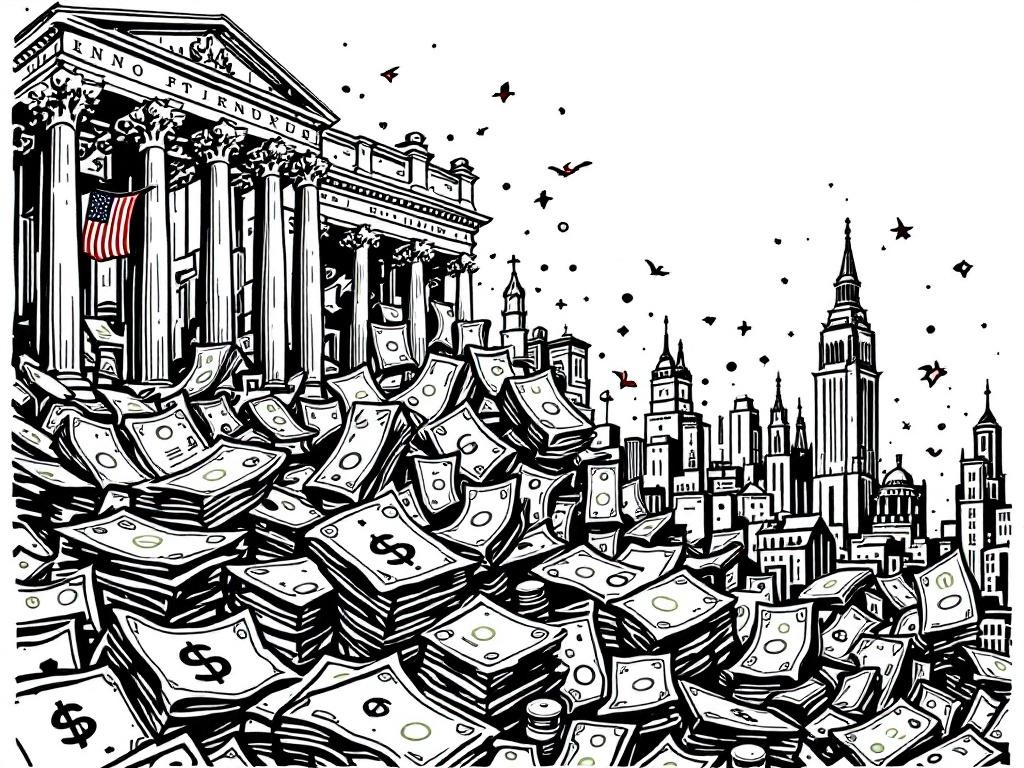Economic Pessimism in the U.S. Bridges Political Divides

Washington, Thursday, 16 October 2025.
A recent survey shows 53% of Americans feel the economy is worsening, reflecting a paradox as economic growth continues. This sentiment transcends political lines, impacting future policymaking.
Inflation and Job Market Concerns
Despite a decline in the inflation rate from 3% in January 2025 to 2.9% in August 2025, a significant portion of the American population remains concerned about their financial security. The majority of Americans report that their monthly household expenses have increased, with 74% experiencing a rise of at least $100 per month, largely due to tariffs imposed by the current administration [1][2]. Furthermore, 47% of Americans perceive the job market as worsening, adding to the economic anxieties that persist across different political affiliations [1].
Political Divides and Economic Perceptions
The perception of economic decline varies significantly across political lines. Among Republicans, only 24% believe the economy is deteriorating, in stark contrast to 60% of independents and 67% of Democrats who share this view [1]. This divide is further reflected in rural areas, where 50% of residents, who largely supported the Trump administration in the 2024 elections, express heightened economic pessimism since the summer of 2025 [1]. The political implications of this divide are profound, as differing economic outlooks could influence voter behavior in upcoming elections.
Impact of Government Policies
The current administration’s policies, such as tariffs and immigration restrictions, have contributed to economic concerns. Tariffs have led to an average annual increase of $2,300 in household expenses, exacerbating financial strain for many Americans [2]. Meanwhile, the Department of Labor warns that immigration crackdowns are leading to labor shortages in agriculture, posing a risk to food supply chains [1]. Despite these challenges, the S&P 500 has seen a 13% increase in 2025, driven by investments in artificial intelligence, illustrating a complex economic landscape [1].
Economic Outlook and Policy Considerations
The broader economic outlook remains mixed. While the U.S. economy is growing steadily with an unemployment rate just over 4%, a large segment of the population feels economically insecure [1][2]. This sentiment is compounded by global pressures, as the IMF highlights risks related to trade disputes and fiscal challenges in its recent reports [3]. As policymakers navigate these complexities, there is an urgent need for balanced fiscal strategies that address both immediate economic concerns and long-term growth objectives.